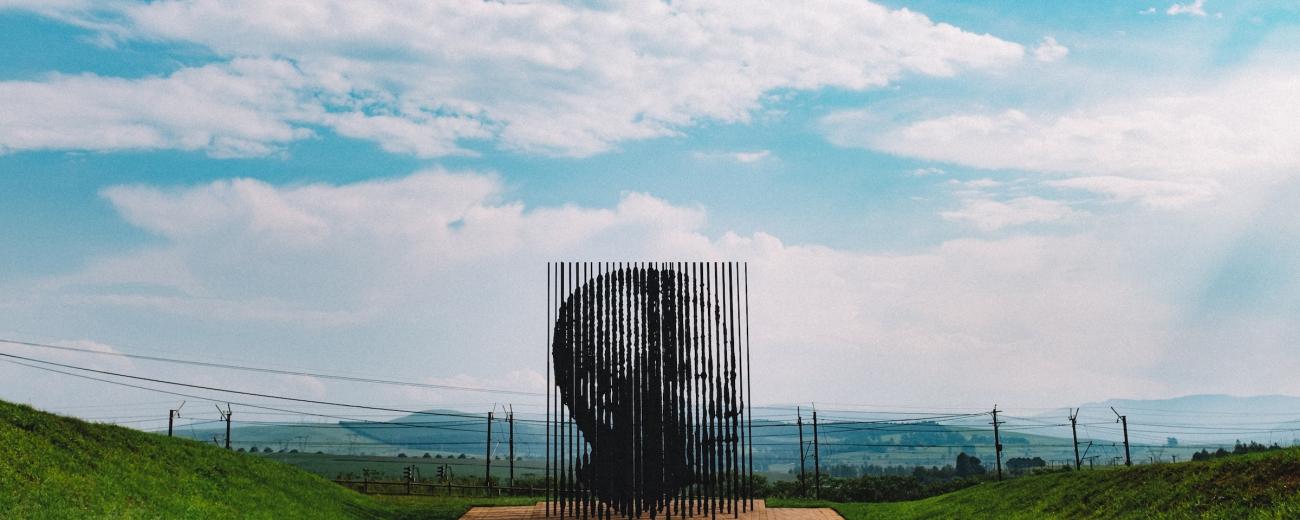
CPS Annual Lecture 2023: Fighting apartheid in South Africa and Israel: The responsibility of intellectuals

Key information
- Date
- Time
-
5:00 pm to 7:00 pm
- Venue
- Brunei Gallery, SOAS
- Room
- Brunei Gallery Lecture Theatre (BGLT)
- Event type
- Event highlights
About this event
This lecture will be framed by Edward Said’s 1993 Reith lecture, ‘Representations of the Intellectual’; Antonio Gramsci’s ideas about the role of organic intellectuals and the views of Neville Alexander, one of South Africa’s foremost public intellectuals and former Robben Island prisoner on the imperative of intellectuals globally to take a decisive stance on the ongoing ethnic cleansing confronting Palestinians.
The urgency of the times and the ethical and political obligation of intellectuals is accentuated in the face of the extreme right-wing Netanyahu/Ben Gvir government’s ramping up of brutality with blanket impunity and the desultory track record of multi-lateral agencies in holding the Israeli state to account.
The lecture will recollect the erstwhile global solidarity of intellectuals and others with the anti-apartheid struggle in South Africa. It will also include the usefulness and limitations of the apartheid analogy by examining various compelling Palestinian, Israeli and international human rights organisation’s reports on Israel’s apartheid against Palestinians.
The avoidance, timidity and even complicity of some higher education institutions who succumb to pressure from those who wield economic and political sway and who harass academics and others who meaningfully support justice will be interrogated and will be shown to be in the words of Said, to be “…corrupting par excellence.” The lecture will also discuss the expedient and opportunistic use of the flawed and controversial International Holocaust Remembrance Alliance’s definition of antisemitism to intimidate and shut down dissent.
The view that Israeli policies and practices against Palestinians meet the legal threshold of the crime of apartheid under international law is gaining traction. Despite this, meaningful action to counter Israel’s settler-colonial apartheid regime and support Palestinians commensurate with the extent of the injustice is lagging behind. Intellectuals have a responsibility to change this situation.
Recording
About the speaker
Salim Vally is the director of the Centre for Education Rights and Transformation, the South African National Research Foundation’s Chair in community, adult and workers’ education and a professor based at the Faculty of Education, University of Johannesburg (UJ). He is also a visiting professor at the Nelson Mandela University.
Vally was a leading member of the South African Students Movement in 1976/1977 and left the country after its banning by the erstwhile apartheid regime and after severe repression. On his return he taught at secondary schools and worked for progressive literacy organisations. From 1985 to 1994 he was the University education officer for a trade union and a founder member of COSATU.
He studied at the universities of York, Witwatersrand and KwaZulu-Natal and was employed by the Wits Education Policy Unit in 1994. Vally joined UJ in 2009 and was a visiting lecturer at Columbia and York universities. He serves on the editorial boards of four academic journals, is on the board of various global and local organisations and is active in various social movements.
Vally is a long serving member of the Palestine Solidarity Campaign of South Africa and a co-ordinating committee member of the South African BDS Coalition. He is presently advising the Dean of Humanities at UJ on establishing a Centre for Palestine Studies – a decision the university took several years ago after a senate vote nullifying an apartheid-era agreement between UJ and Ben Gurion. His books include History’s Schools: Past Struggles and Present Realities (UKZN Press, 2018), The University and Social Justice: Struggles Across the Globe (Pluto Press, 2020) his forthcoming book Against Racial Capitalism: The selected writings of Neville Alexander will be published in 2023.
Registration
This event is free to attend, but please note that seating is on a first-come, first-served basis.
- Chair: Dina Matar, SOAS
- Organiser: Centre for Palestine Studies, SOAS


